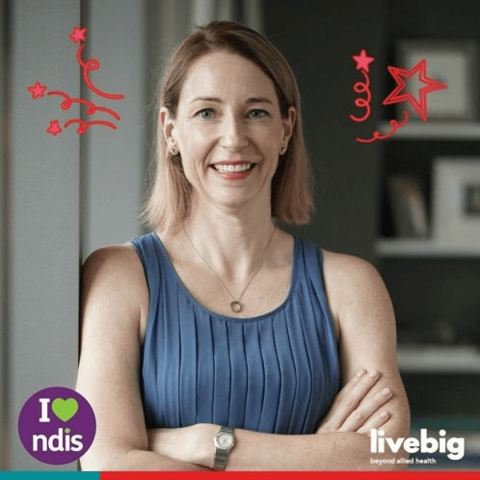
Melissa Marsden
Recent NDIS reforms have made a concerted effort to remove neurodivergent children from the National Disability Insurance Scheme, with projections showing the cutbacks will reduce spending by $500 million in the following year.
LiveBig, a disability services provider, argues the growing trend for early behavioural support for children reflects growing awareness of the issue rather than overdiagnosis. CEO Juliet Middleton says early intervention and tailored support based on individual functioning is proven to reduce long-term dependence.
The rapid rise in autism diagnoses among Australian children - now reaching 4.3% of those aged 5 to 14 - means demand is surging for positive behaviour support. These do promote emotional regulation and participation in community life, but they're also expensive. Very expensive, by the time you multiply the cost per individual by the number of children affected.
Middleton is clear that the purpose of the NDIS is not to cover every variation of developmental delay saying “it’s for people with permanent, lifelong disabilities that significantly impair functioning”. Children with mild to moderate concerns, she argues, should be supported through alternative, foundational mechanisms rather than through the Scheme.
This, she believes, would preserve the integrity of the NDIS while ensuring that intensive supports go to those who need them most.
Middleton maintains that the surge in autism diagnoses should not be viewed with alarm, but rather as a sign of improved awareness and access to support.
“The increase is a good thing,” she says, “because it means children are getting help earlier, rather than waiting until issues become severe.”
LiveBig provides behaviour support practitioners who work closely with families, schools and other professionals to help children regulate their emotions and better participate in everyday settings. These supports are not uniform and Middleton stresses the importance of understanding the full range of functioning and tailoring plans to a child’s realistic goals.
“No one child on the spectrum is the same,” she says.
Despite the ongoing public debate over the necessity and cost of such support, Middleton draws a line between children with mild challenges and those with lifelong impairments.
“The NDIS is for children who need a lot of tailored support,” she explains. That does not mean pursuing cures. “We’re not trying to fix them,” Middleton says, “we’re helping them meet their goals—so over time, they might require less support.”
Kelly Deslandes, a behaviour support practitioner at LiveBig, adds that effective behavioural support enables children to feel heard and safe, especially in school environments. This boosts emotional regulation and builds capability over time.
As broader social attitudes shift toward neurodiversity and inclusion, LiveBig’s approach, centred on respect, collaboration, and realistic planning, offers a model for how disability services might adapt to rising demand without losing sight of individual needs.
LiveBig’s approach aligns with evidence-informed practices, particularly Positive Behaviour Support (PBS), which focuses on practical strategies to help children manage their emotions and navigate social settings. Such supports are increasingly being delivered flexibly, either at home, in schools, or via telehealth, making them more accessible to families across Australia. Deslandes says the key is communication.
“We work with children in ways they understand, so they feel safe and comfortable, especially in school environments. That safety is what allows emotional regulation to take root.”
The Federal government has released a National Autism Strategy to improve outcomes for the almost 300,000 autistic people across the country. This has nevertheless led to continuing debate about what sort of supports are necessary, or if neurodivergence should be treated simply as part of human variation.
Any other answer is likely to test the limits of a strained support system.
Though some critics suggest rising autism diagnoses may reflect overdiagnosis or shifts in diagnostic thresholds, Middleton declines to question medical professionals.
“No one makes these diagnoses lightly—there are real consequences,” she says. For her, the rise in diagnoses reflects increased awareness and a broader understanding of neurodivergence. The growing push from the autistic community to define autism as a variation rather than a deficit supports this shift.
Middleton agrees. “We’re not chasing cures,” she insists. “We’re building independence, connection, and long-term outcomes—because that’s what every child deserves.”
from https://www.abilitynews.org/p/advocate-says-spending-money-today-will-save-more-tomorrow